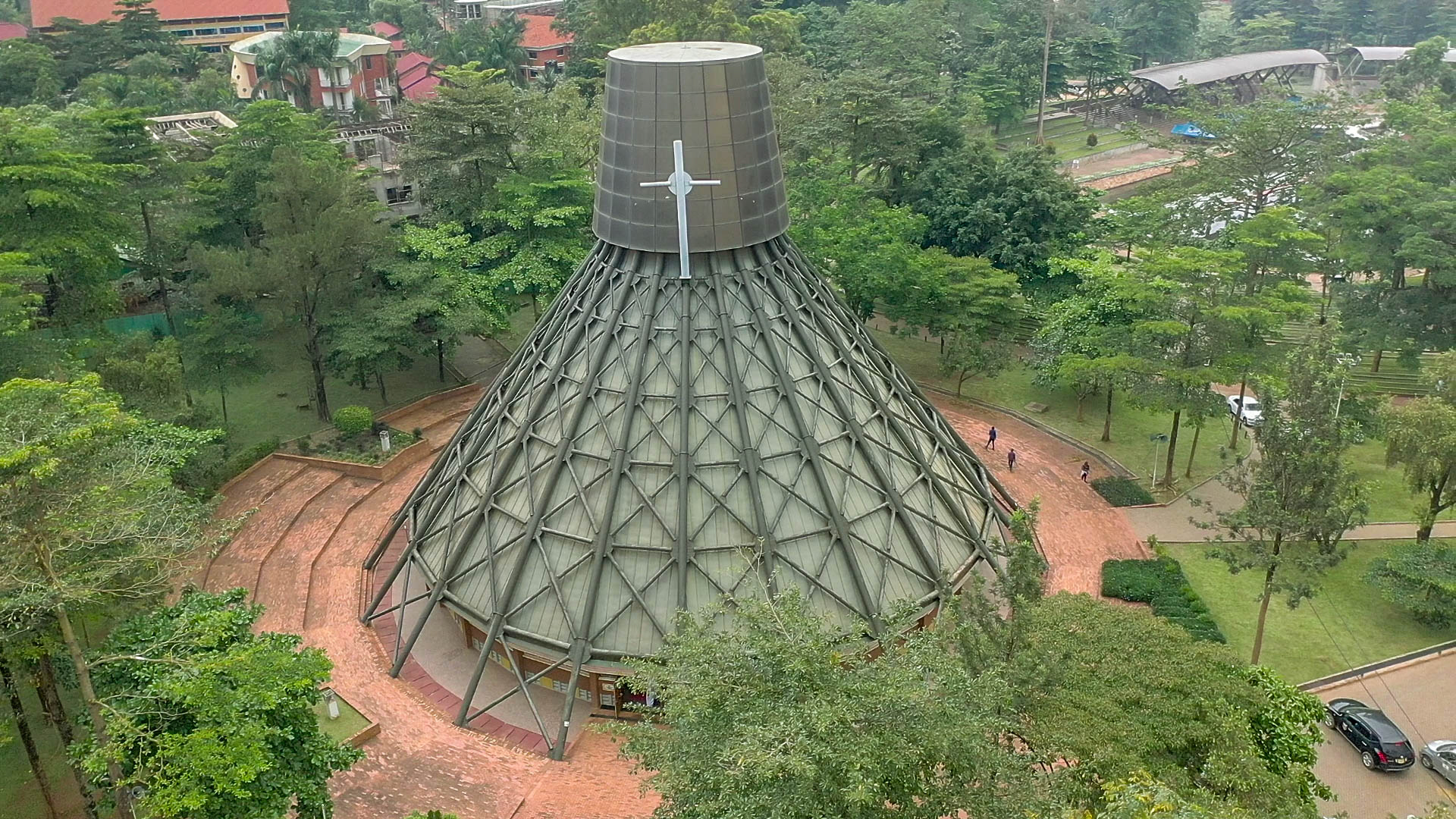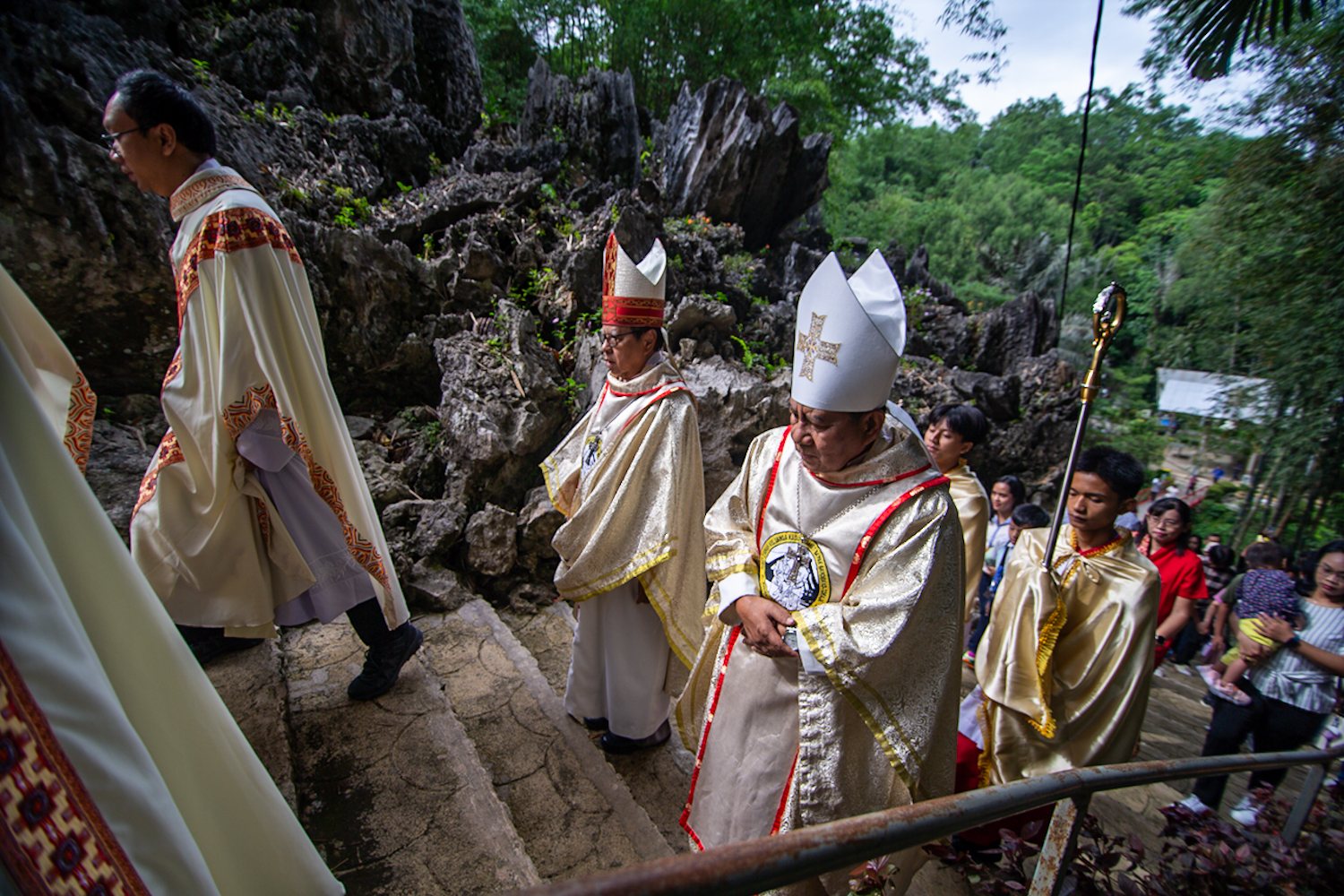Memory of the Martyrs and the Fight Against Human Trafficking
Joaquim Magalhães de Castro
Inspired by Catholic social doctrine, the nuns of the Association of Religious of Uganda (ARU) face day after day, and with the greatest courage, different battlefields “for the peace and well-being of humanity”, including the fight against human trafficking.
In this particular case, the task is led by the Sisters of the Holy Cross who have already set up several ‘specialized commissions’ in the 19 dioceses of this African country. On June 23, for example, an awareness campaign was launched in the diocese of Kasese about this social plague, an event that attracted a lot of publicity thanks to a theatrical show (under the theme ‘human trafficking’) staged by the team of a local radio station. The diocese of Kasese, founded in 1989 by the then Pope John Paul II, is located in the western region of Uganda, and these are its inspiring principles: First: every human being is precious and worth much more than any material good. Second: taking into account that each life, “as a gift from God”, is sacred, it must always be protected and cared for. Third: each of us has a responsibility to fight against “the violation and degradation of the well-being” of our brothers and sisters.
The Sisters of the Holy Cross do not hesitate to critically analyze the society in which they live, which is increasingly deprived of its basic human values and the moral fiber that helps people achieve their highest potential and human dignity. The motivation of these brave nuns comes from several sources: the Holy Scriptures, the lives of the Saints, African proverbs and biblical stories such as Genesis 18:16-32 (Abraham pleads for Sodom and Gomorrah), Esther 5-7 (Esther faces risks for his people), Luke 11:5-8 (a friend begs for someone in need), John 10:10 (Jesus gives the fullness of his life) and Luke 4:18 (Jesus’ manifesto, which brings the freedom to the oppressed).
Saint Catherine of Siena reminded us that it is “silence that kills the world”, and church leaders always encouraged us to act in the name of justice, because only in this way “we truly live the Gospel”.
During the launch of the aforementioned campaign, Sister Semerita Mbambu urged young victims to attend qualified courses in their country of origin, in order to guarantee their livelihood, instead of going abroad, “subject to being abused until death”. And this is the common destiny of many men and women from Uganda, Sri Lanka, Bangladesh, Indonesia, Ethiopia, Eritrea, Sudan, Pakistan and the Philippines, who seek, essentially in the Arab States of the Persian Gulf, the different types of work. Unfortunately, once they arrive there, they face inhumane conditions of servitude, with excessive unpaid working hours, illegal retention of passports, restrictions on movement, lack of payment of wages and, especially in the case of female domestic workers, physical or sexual abuse by part of their employers.
In March 2014, Pope Francis, together with Anglican Archbishop Justin Welby, launched the Interfaith Global Freedom Network to combat human trafficking, as well as the Santa Marta Group, an international coalition of senior leaders responsible for enforcement of the law and leaders of the Catholic Church who work with civil society to put an end to such a crime. The Supreme Pontiff also launched the End Slavery movement with the aim of finding ways to eliminate human trafficking, an activity that is widespread on the African continent, as is public knowledge. According to data collected by the United Nations Office on Drugs and Crime, victims of trafficking of sub-Saharan origin were reported in 69 countries, mainly in MENA countries (Middle East and North Africa) and in southern and western Europe.
Still in the month of June, around 4 million faithful attended a Catholic sanctuary in the small town of Namugongo, 20 kilometers from the capital Kampala, to evoke the memory of the Ugandan martyrs. A particularly significant celebration, as it marked the 60th anniversary of the canonization of the 22 Catholics and 23 Anglicans murdered between 1885 and 1887 by order of King Mwanga II, in the then Kingdom of Buganda.
Of those martyred, Saint Carlos Lwanga stands out, the target of particular devotion in Namugongo, where on June 3rd more than 700 pilgrims were present, after having covered, “on foot and in the rain”, almost 500 kilometers over two weeks. They would be accompanied in their act of faith by Monsignor Raphael p’Mony Wokorach, outgoing Bishop of Nebbi and Metropolitan Archbishop-elect of Gulu, and who would celebrate Mass with 20 other concelebrating bishops in a pavilion in the middle of an artificial lake, a few hundred meters away of the basilica built on the site where Saint Charles Lwanga was killed, today appropriately called the Sanctuary of the Uganda Martyrs.
In his homily, the Archbishop-elect warned the faithful not to be seduced by the multiple forms of idolatry and practices that are not in accordance with the Christian faith, such as polygamy, witchcraft and genital mutilation, recalling that the Ugandan martyrs preferred to die rather than renounce their faith. The celebration was attended not only by faithful from Uganda, but also from several other African countries (South Sudan, Kenya, Rwanda, Tanzania, Democratic Republic of Congo, Cameroon, Botswana, South Africa) and other continents (Argentina, Colombia, Australia and Denmark). The mass was also attended by important representatives of the State, including President Yoweri Museveni.


 Follow
Follow


